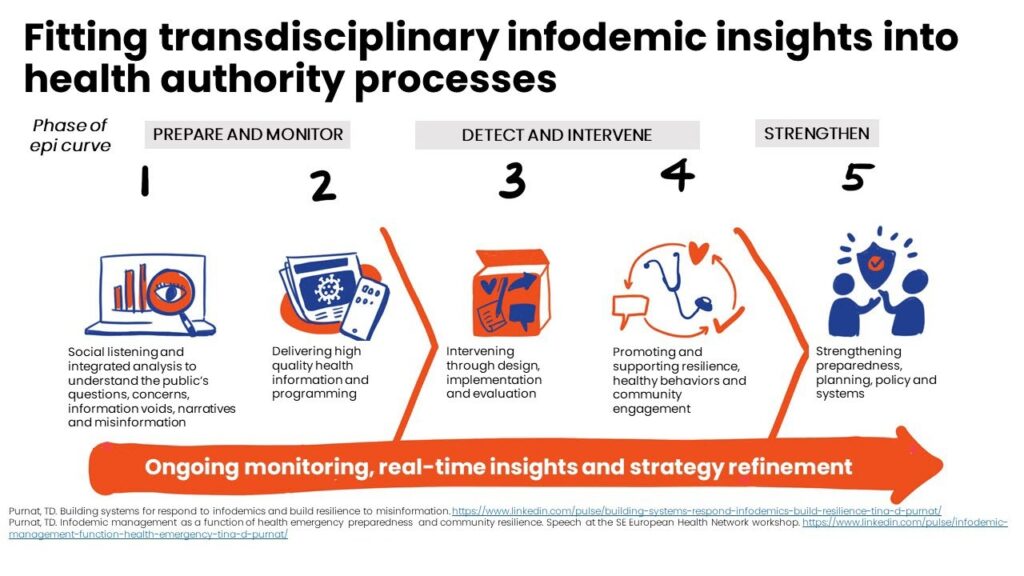We Need More than Universal Access to Information
Strengthening the Information Ecosystem to Ensure Access to Reliable, Fact-Based Information
By Liz Hall, WI-HER Associate, Communications
Growing up in the 1980s-90s in middle America, when I wanted to learn something new or find an answer to a question, I’d pull an encyclopedia off my school’s shelves or head to my local library to do research. Since then, because of the Internet, opportunities for accessing information have exploded. Even so, disparities in access to information continue to abound, and this disparity is often referred to as the “digital divide”—those with internet access and those without. In 2021, 3.7 billion people still lived without Internet access, according to the UN.
Working towards equity in information access, and fixing the digital divide, is critical. But it is only one piece of the puzzle. Information builds our knowledge base. The more information we have the better, right? Not always.

The Internet is a significant part of our information ecosystem now. It’s how we look up and find information and answers to our questions. The Internet also makes it easier to reach more people, including disadvantaged or marginalized groups.
But due to the depth and breadth of information online, it means we are inundated with information at every turn. Social media alone is a constant feed of information, and it’s not always accurate, especially considering anyone with Internet access can post anything at any time. This inaccurate information is often referred to as misinformation and disinformation, and the difference between the two is intent. Both are false information, but disinformation is purposefully so; it is spread with the intent to deceive, trick, or mislead.
When we talk about universal access to information, the conversation also needs to include a discussion on how to ensure that individuals are gaining access to reliable, fact-checked, research-based information, or, at the very least, how to foster the critical thinking skills necessary to assess the validity and truth of what people are reading and sharing online. But even before all this, we need to ensure that individuals possess literacy skills, and therefore access to education. The issue of universal access to reliable information is clearly complex and multi-faceted and will take numerous interventions.
The field of infodemic management can provide some assistance with and insights into this seemingly monumental task. While infodemic management is largely focused on addressing misinformation related to health-seeking behaviors, the principles that underpin it can help guide us toward 1) increasing access to education and literacy, 2) working toward equal access to information, and 3) ensuring that information is reliable and true, or that individuals are able to assess the truthfulness of it.
As Tina Purnat, from the World Health Organization, shares, a key step involves social listening and understanding the information ecosystem where people are looking for and currently finding their information. Part of this process involves also identifying what information they are not finding, also known as information voids.
While every information ecosystem is different—and not everyone has access to the Internet—there are now more ways than ever to reach people, teach, and build capacity. Furthermore, educating others on misinformation, and how to identify it, can be done through radio dramas, telephone scripts, utilizing WhatsApp, conducting in-person and virtual training sessions, creating and handing out pamphlets, and offering online courses, including critical thinking skills-building sessions.
Information is power. But if that information is fraught with errors or misleading information, it can further harm already hurting populations. Designing interventions and creating initiatives to help people identify and address misinformation is critical if we are truly looking to empower people with information.